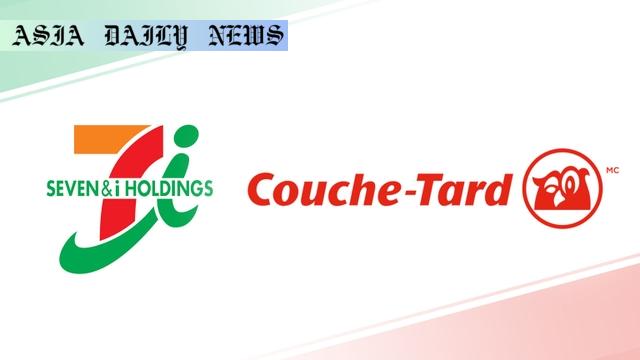Seven & i: Canadian convenience-store operator Alimentation Couche-Tard withdraws buyout proposal for Japan’s Seven & i Holdings.
Canadian company Alimentation Couche-Tard withdraws Seven & i Holdings buyout bid.
The decision was significant for international business negotiations.
The discussion highlights challenges in cross-border mergers.

Introduction
The business world recently witnessed a significant development as Canadian convenience-store operator Alimentation Couche-Tard formally withdrew its ambitious proposal to acquire Japan’s Seven & i Holdings. The buyout deal, estimated to be worth approximately $7 billion, was one of the most talked-about potential acquisitions in recent months. This step showcases both the challenges of cross-border takeovers and the strategic business maneuvers that corporations need to deploy in an ever-evolving global marketplace.
The Overview of the Deal
Alimentation Couche-Tard, a prominent name in the convenience store segment, made an effort to expand its influence in the Asian market through the acquisition of Seven & i, the Japanese retail giant that owns the beloved 7-Eleven franchise. The planned acquisition aimed at strengthening Couche-Tard’s footprint in Asia, where 7-Eleven holds a commanding presence. However, despite the seeming potential of the partnership, the Canadian firm’s sudden withdrawal reflects the complexities of such high-scale cross-continental negotiations.
The Challenges Behind the Withdrawal
While the specific reasons for pulling out of the transaction remain under wraps, industry analysts speculate about the potential hurdles that may have influenced the decision. Cultural differences in business practices, valuation disagreements, regulatory hurdles, and shareholder resistance are among the reasons often cited. Acquisitions of this scale require careful alignment between both parties, from corporate philosophies to operating strategies, and the unwillingness to compromise can derail even the most promising deal. Couche-Tard’s withdrawal could be seen as a strategic retreat rather than a failure—perhaps to avoid entering an agreement that posed more risks than rewards.
The Implications for the Market
This withdrawal not only impacts Couche-Tard but also has global ramifications, sending signals to other firms eyeing similar acquisitions. The decision to bow out may shake investor confidence regarding Couche-Tard’s future strategies. Similarly, potential acquirers of Seven & i would now reassess the inherent risks in pursuing the Japanese retail conglomerate. The news underscores the fragility of major market transactions and highlights the thorough due diligence required to ensure compatibility at all levels.
What’s Next for Seven & i?
For Seven & i Holdings, the path forward involves considering other suitors or implementing strategic reforms. Investors and analysts will be closely observing whether the Japanese retail powerhouse will now focus on internal restructuring to address its ongoing challenges, such as addressing market saturation and improving operational efficiency, especially in its home market. While this failed acquisition highlights uncertainty, it also offers Seven & i an opportunity to reinvent itself to attract more lucrative and viable deals in the future.
Conclusion
The withdrawal by Alimentation Couche-Tard from its proposed takeover of Seven & i Holdings serves as a reality check for companies engaging in cross-border acquisitions. As globalization increases, so do the complexities of international deals. Moving forward, businesses must tread carefully and engage in long-term strategies that are adaptable to diverse cultural and operational challenges.
Commentary
The Complexities of International Mergers
International business acquisitions are intricate endeavors that involve a myriad of factors spanning legal, cultural, and operational dimensions. The case of Alimentation Couche-Tard‘s decision to withdraw its bid for Seven & i highlights the inherent difficulties in navigating this complex landscape. While on the surface, the deal may have seemed like a win-win for both companies—a Canadian giant expanding into the lucrative Asian market and a Japanese conglomerate boosting its global stature—the reality suggests otherwise. The challenges of such transactions often lie in the details, from aligning corporate strategies to addressing regulatory hurdles.
Strategic Retreat or Missed Opportunity?
The withdrawal could be interpreted in two ways: as a calculated retreat to avoid entering a risky or ill-matched partnership or as a missed opportunity to create a transformative, cross-border enterprise. Only time will reveal whether this decision impacts Couche-Tard‘s global standing positively or negatively. In a world that increasingly values agility and adaptability, recognizing when to walk away is as crucial as identifying opportunities in the first place. However, the narrative of faded ambition may prove a concern for stakeholders who expected bold expansionism.
Looking Ahead
What this withdrawal demonstrates is the growing need for careful preparation, transparency, and clear communication between entities involved in cross-border mergers and acquisitions. Businesses must learn that success in such ventures is not guaranteed by financial valuations alone but by fostering shared visions and executable strategies. As for Seven & i, the failed deal offers a chance to self-reflect, reassess its strengths, and pursue reformative paths. Overall, the development is a stark reminder that high-scale negotiations come with high stakes, requiring deliberate and informed decision-making throughout the process.


